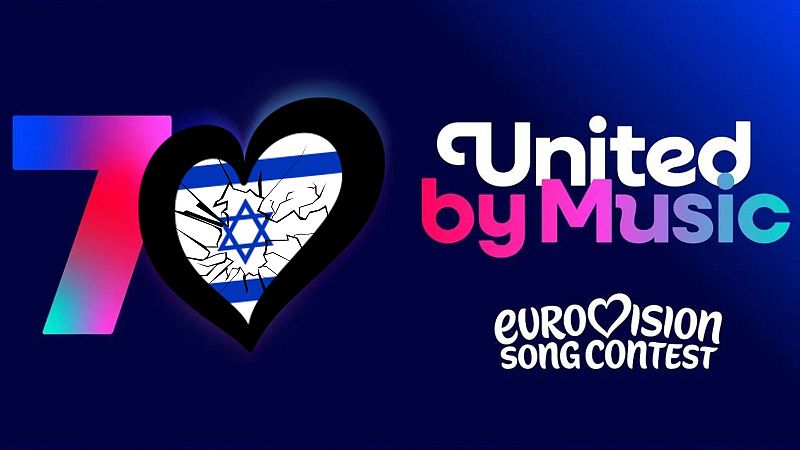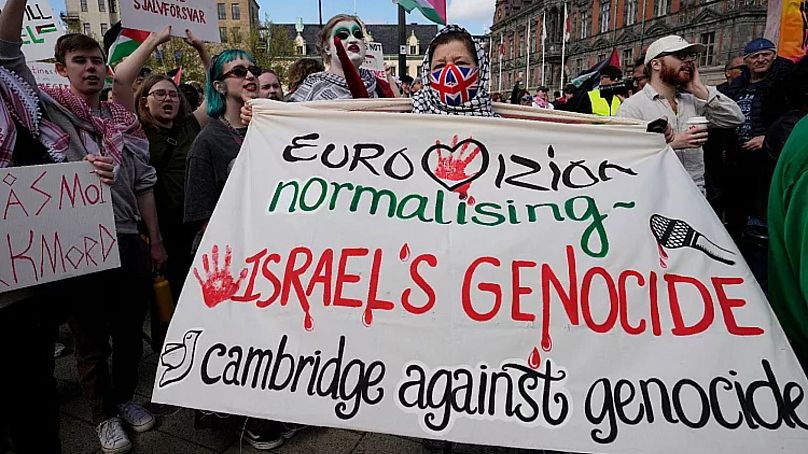
Eurovision is currently facing its biggest political dilemma in years, as a growing number of European broadcasters have threatened to boycott the competition should Israel take part.
Spain’s Culture Minister Ernest Urtasun has called for RTVE to pull out if Israel is included; Ireland’s RTÉ officially declared it would not take part, citing the “ongoing and appalling loss of lives in Gaza,” the killing of journalists and restrictions on media access; the Netherlands’ AVROTROS followed suit, stating participation “will not be possible as long as Israel is admitted by the EBU”; and Slovenia’s RTVSLO has also informed the EBU that it will not participate under current circumstances.
"We understand the concerns and deeply held views around the ongoing conflict in the Middle East," Eurovision director Martin Green said in a statement.
"Broadcasters have until mid-December to confirm if they wish to take part in next year's event in Vienna," he said, adding: "It is up to each member to decide if they want to take part in the contest and we would respect any decision broadcasters make."
Now, it appears that European officials involved in organising Eurovision have come up with a proposal to Israel’s national broadcaster, KAN.
According to Ynet, the EBU has “unofficially” told Israeli representatives that they need to temporarily withdraw from the competition. Alternatively, if Israel wishes to remain in the contest, they need to perform under a neutral flag - similar to the approach taken by Russian athletes at recent Olympic Games.
Considering the latter option is more an aesthetic fix that does not solve the moral objections European broadcasters have highlighted, it doesn’t feel like a particularly adequate solution. As for the first option, a withdrawal would avoid any formal “humiliating disqualification” during the General Assembly vote scheduled for December.
Whether KAN accepts any of the proposals has yet to be determined, but there are reports that KAN officials are reluctant, with the idea of performing without the national flag considered unacceptable.
Another unofficial suggestion included a proposal for the Israeli Public Broadcasting Corporation to issue a public statement distancing itself from the policies of the Israeli government. Advocates of this option argued it could sway sentiment ahead of the December vote.

Eurovision has been caught up in political tensions over Israel’s participation for two years now.
Since the Oct. 7 attacks of 2023, Israel has competed in two Eurovision contests, both held against a backdrop of protest. In 2014, thousands gathered in Sweden in protest at Israel’s participation while in Basel earlier this year, protestors attempted to rush onto the stage to disrupt Israeli singer Yuval Raphael’s performance.
The aforementioned EU broadcasters join more than 70 former Eurovision contestants who signed an open letter demanding Israel and its national broadcaster KAN be banned from the contest.
The winner of last year’s Eurovision, Austrian singer JJ, has said that he too wants Israel to be banned from the Eurovision 2026.
The EBU has extended its penalty-free withdrawal deadline to December, when a final decision on Israel’s participation is expected at the General Assembly.
Since Hamas’ attack on Israeli citizens on October 7, 2023, multiple UN human rights experts have stated that Israel’s military actions in Gaza amount to genocide, with the International Court of Justice finding claims of genocide plausible. The Integrated Food Security Phase Classification announced that people in the Gaza Strip are officially facing “a man-made” famine in the territory – despite what the Israeli government has said.
The 70th anniversary edition of Eurovision is due to take place in Vienna, Austria.The finale will take place on 16 May after the semi-finals on 12 and 14 May 2026.







